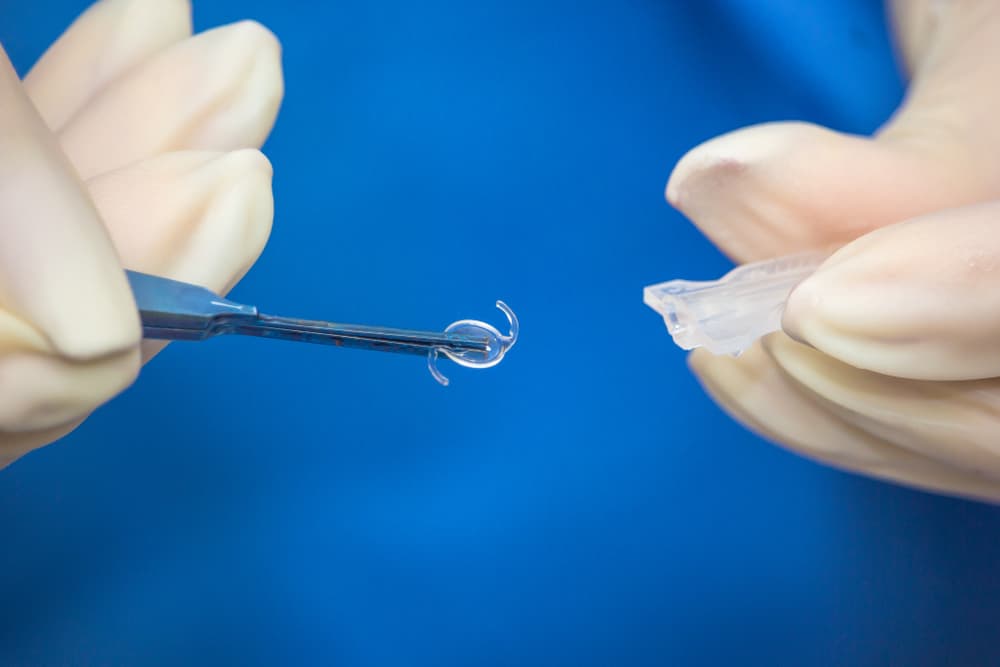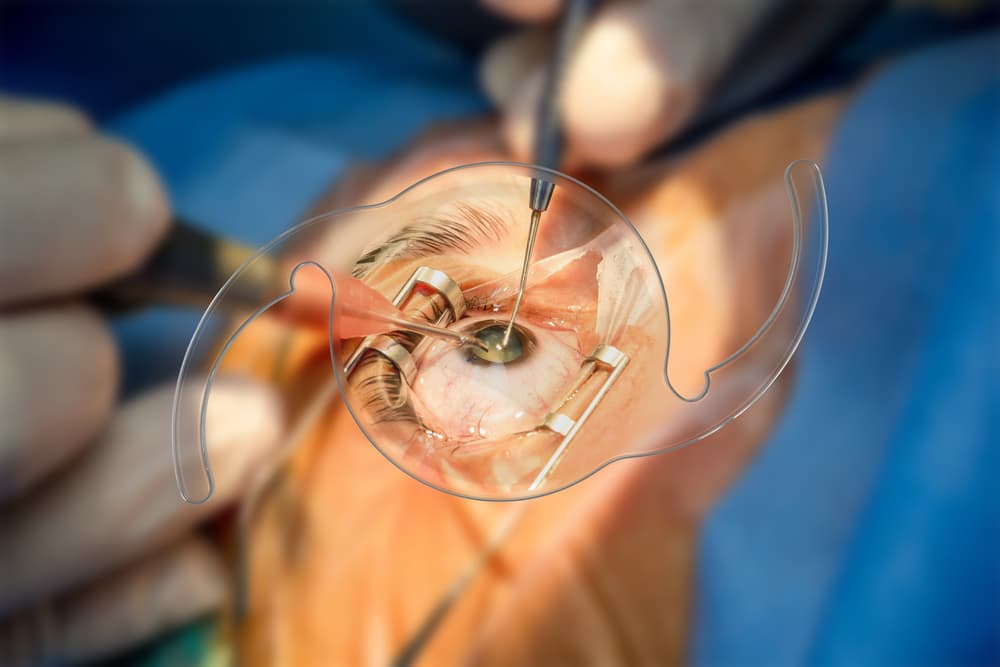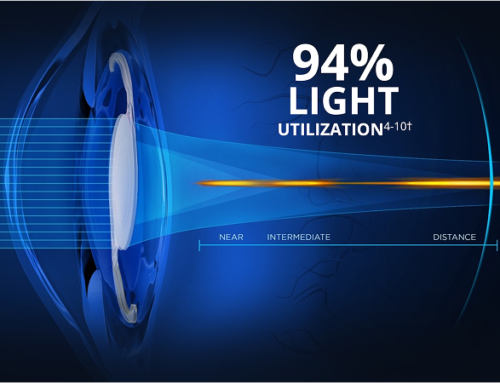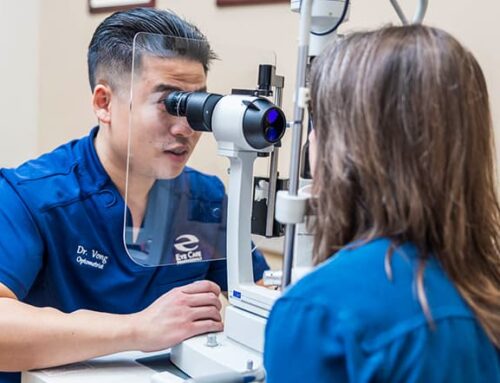Protecting your eyes and maintaining good vision health is crucial, especially with the advancements in ophthalmology. One such advancement is Intraocular Lenses (IOLs). Suppose you’ve recently undergone cataract surgery or are considering it. In that case, this guide will help you understand how to take care of your eyes before and after the procedure, ensuring long-term benefits.
Understanding IOLs

Intraocular Lenses (IOLs) are artificial lenses implanted in the eye to replace the eye’s natural lens when it has been removed during cataract surgery. They come in various types, including monofocal, multifocal, and toric lenses, each serving a different purpose to improve vision.
IOLs play a significant role in restoring clear vision post-surgery. These lenses can correct various vision issues, such as nearsightedness, farsightedness, and astigmatism. Choosing the right type of IOL depends on individual needs and should be discussed with an eye care professional.
Understanding the function and benefits of IOLs is the first step in ensuring optimal eye care and vision health post-surgery. Now, let’s explore how to care for your eyes before undergoing IOL surgery.
Pre-Surgery Eye Care
Preparing your eyes for IOL surgery is essential for a successful procedure and recovery. Here are some tips to get your eyes ready:
Schedule a Comprehensive Eye Exam
A thorough eye examination is crucial to determine the best type of IOL for your vision needs. Your eye doctor will evaluate your overall eye health, including checking for any conditions that might affect the surgery.
Follow Pre-Surgery Instructions
Your eye surgeon will provide specific instructions to follow before the surgery. This may include stopping certain medications or using prescribed eye drops to prevent infection and inflammation.
Maintain General Health
Keeping your body healthy can significantly impact your eye health. Ensure you eat a balanced diet rich in vitamins and minerals, particularly those beneficial for eye health, like vitamins A, C, and E.
By taking these steps, you can help ensure your eyes are in the best possible condition for surgery, leading to better outcomes and smoother recovery.

Post-Surgery Eye Care with IOLs
Post-surgery care is critical to protect your eyes and maintain good vision health. Here’s what you need to do:
Follow Your Doctor’s Instructions
After surgery, your eye doctor will provide detailed instructions on how to care for your eyes. This will likely include using prescribed eye drops to prevent infection and reduce inflammation.
Avoid Strain and Protect Your Eyes
Avoid activities that might strain your eyes for at least a few weeks after surgery, such as heavy lifting or vigorous exercise. Additionally, wear sunglasses to protect your eyes from dust, wind, and bright light.
Attend Follow-Up Appointments
Regular follow-up appointments are crucial to monitor your healing process and ensure your eyes adjust well to the IOLs. Your doctor will check for complications and adjust your treatment plan as needed.
These post-surgery care tips can help you recover quickly and maintain your vision health.
IOLs Benefits
IOLs offer numerous benefits for maintaining long-term vision health. Let’s look at both short-term and long-term advantages.
Short-term Advantages
- Immediate Improvement in Vision: One of the most significant benefits of IOLs is the immediate improvement in vision quality following surgery. Patients often notice clearer, sharper vision within days.
- Reduced Dependence on Glasses: Many people no longer rely on glasses or contact lenses for everyday tasks, as IOLs can correct various vision issues.
- Quick Recovery Time: With modern surgical techniques and proper post-surgery care, recovery time is relatively quick, allowing patients to return to normal activities sooner.
Long-term Advantages
- Permanent Vision Correction: IOLs provide a long-term solution for vision correction. Unlike glasses or contact lenses, which may need frequent updates, IOLs offer a more permanent fix.
- Prevention of Further Eye Issues: Implanting IOLs can prevent the progression of cataracts and other age-related eye issues, contributing to overall eye health and longevity.
- Enhanced Quality of Life: Improved vision can lead to a better quality of life, allowing individuals to enjoy activities they may have previously avoided due to poor eyesight.
Common Concerns

Adjusting to New Vision
It’s natural to have concerns about adjusting to a new vision with IOLs. Some patients may experience halos, glare, or mild discomfort as their eyes adapt to the new lenses. These symptoms usually subside within a few days or weeks.
To ensure optimal adjustment, follow your doctor’s advice and communicate any persistent issues. Wear eye protection to avoid light.
Potential Complications
While complications from IOL surgery are rare, it’s important to be aware of potential risks. These can include infection, inflammation, or dislocation of the lens. Regular follow-up visits with your eye doctor help monitor for these complications early on for timely intervention and treatment. Additionally, adhering to the recommended post-surgery care routine significantly lowers the risk of complications.
Managing Expectations
Understanding the realistic outcomes of IOL surgery helps manage expectations. While most patients experience significant improvements in vision, some may still need to use glasses for specific tasks, such as reading or driving at night. Discussing concerns and desired outcomes with your eye care professional ensures clarity and satisfaction.
Trust Our Experts
Taking care of your eyes is essential for maintaining good vision health, especially when undergoing procedures like IOL implantation. By understanding the benefits of IOLs, preparing your eyes before surgery, and following post-surgery care instructions, you can ensure optimal vision for years.
If you’re considering IOLs or have recently undergone the procedure, consult with the experts at Eye Care Professionals. Get in touch with our team at Eye Care Professionals to learn more about our services and how we can help you maintain excellent vision health.











